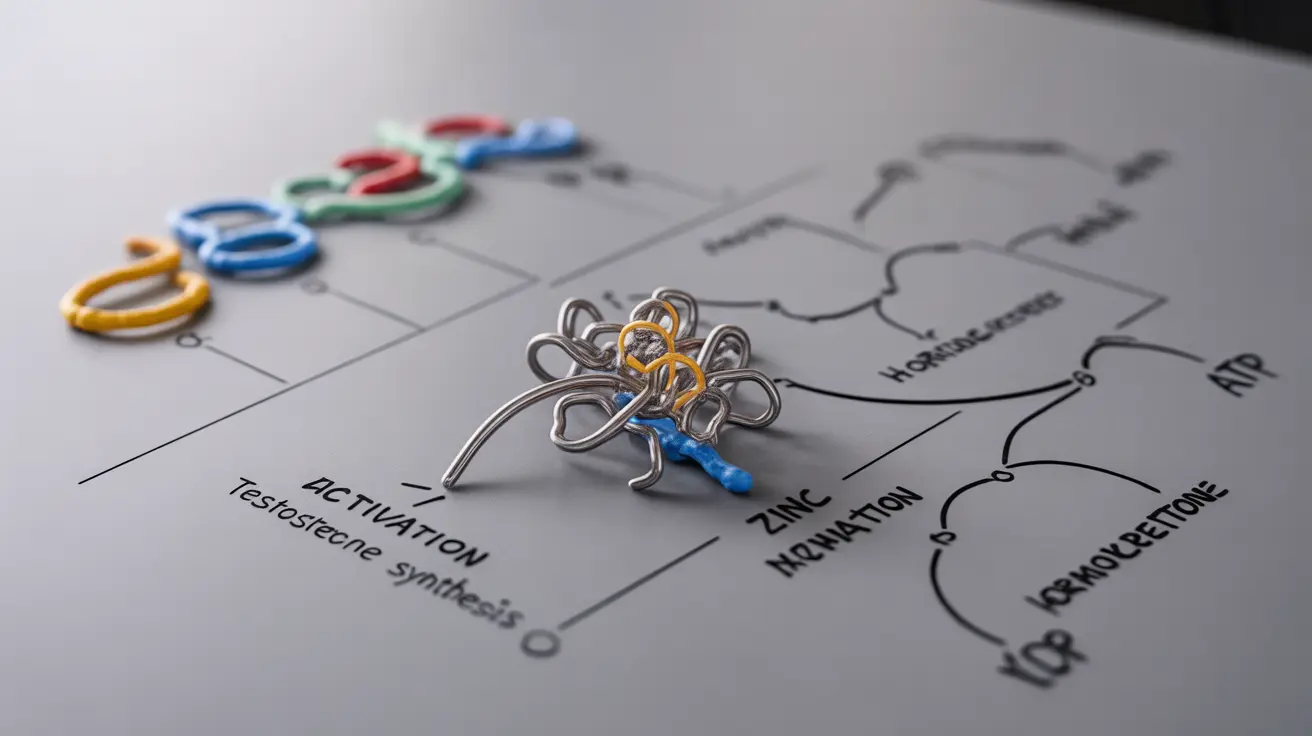The relationship between zinc and testosterone has garnered significant attention in men's health circles. This essential mineral plays a crucial role in various bodily functions, including hormone production and regulation. Understanding how zinc affects testosterone levels can help you make informed decisions about your nutritional needs and supplementation.
Research suggests that zinc's impact on testosterone production is more complex than simply taking a supplement and watching levels rise. Let's explore the scientific evidence behind this mineral-hormone connection and what it means for your health.
The Scientific Link Between Zinc and Testosterone
Zinc serves as a fundamental building block for testosterone production in the body. This mineral activates enzymes necessary for converting cholesterol into testosterone and supports the cells responsible for producing this vital hormone. Research has shown that maintaining adequate zinc levels is essential for optimal testosterone production.
Studies have demonstrated that zinc deficiency can lead to decreased testosterone levels, while correcting this deficiency often helps restore normal hormone production. However, the benefits may be most pronounced in those who are already deficient in zinc.
Understanding Zinc Deficiency and Testosterone Production
Several factors can contribute to zinc deficiency, which may subsequently affect testosterone levels:
- Poor dietary intake
- Intense physical activity
- Certain medical conditions
- Aging
- Vegetarian or vegan diets
Recognizing the signs of zinc deficiency is crucial for maintaining healthy testosterone levels. Common symptoms include:
- Decreased immune function
- Slower wound healing
- Loss of appetite
- Reduced sense of taste and smell
- Hair loss
- Fatigue
Safe Supplementation Guidelines
While zinc supplementation can be beneficial, it's important to approach it safely. The recommended daily allowance (RDA) for zinc in adult men is 11 mg per day. However, athletes and those with increased needs may require slightly more.
When considering zinc supplementation, keep these guidelines in mind:
- Start with the recommended daily dose
- Take supplements with food to minimize stomach upset
- Choose high-quality supplements from reputable manufacturers
- Monitor your body's response
- Consult healthcare providers before starting supplementation
Natural Sources of Zinc for Testosterone Support
Obtaining zinc through diet is the most natural and safe approach. These foods are excellent sources of zinc:
- Oysters and other shellfish
- Lean red meat
- Poultry
- Pumpkin seeds
- Nuts
- Legumes
- Whole grains
Including these foods in your regular diet can help maintain optimal zinc levels without the need for supplementation.
Frequently Asked Questions
Does zinc really increase testosterone levels in men, or is it just beneficial for those with a deficiency?
Zinc primarily helps increase testosterone levels in men who are deficient in this mineral. While maintaining adequate zinc levels is essential for optimal testosterone production, supplementing when levels are already normal may not lead to significant increases in testosterone.
What are the symptoms of zinc deficiency that can affect testosterone production?
Key symptoms of zinc deficiency that may impact testosterone production include fatigue, decreased libido, hair loss, delayed wound healing, and reduced immune function. These symptoms often appear gradually and can be mistaken for other conditions.
How does zinc supplementation improve testosterone levels, and is it safe for everyone?
Zinc supplementation works by supporting the enzymes and cellular processes involved in testosterone production. While generally safe, it's not recommended for everyone. People taking certain medications or with specific health conditions should consult their healthcare provider before starting supplementation.
Can taking too much zinc lead to negative health effects or toxicity?
Yes, excessive zinc intake can cause adverse effects including nausea, vomiting, loss of appetite, stomach cramps, and headaches. Long-term overconsumption may interfere with copper absorption and impact immune system function. It's important to stay within recommended dosage guidelines.
What are the best dietary sources of zinc to help maintain healthy testosterone levels?
The best dietary sources of zinc include oysters, beef, crab, lobster, pumpkin seeds, chickpeas, and nuts. These foods provide naturally occurring zinc along with other beneficial nutrients that support overall health and hormone production.




